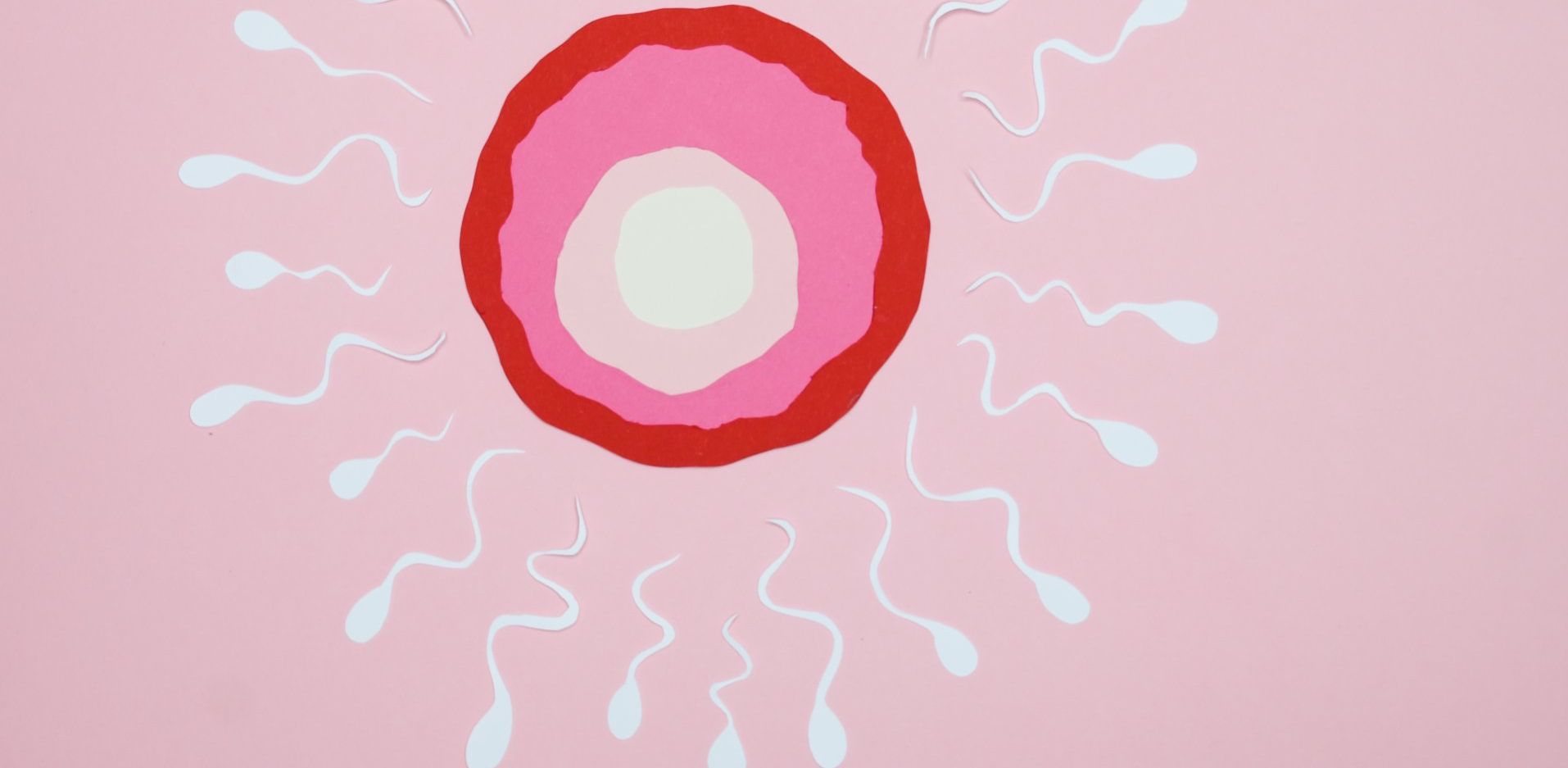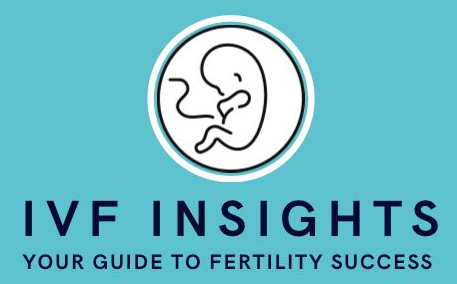
How to Know If You're Infertile: Recognizing the Signs
Bringing a child into the world is a dream shared by countless individuals and couples worldwide. Yet, for some, the path to parenthood can be fraught with challenges.
Infertility, though often considered a deeply personal and stigmatized topic, affects millions of people across the globe. It's a condition that can leave those experiencing it feeling isolated, confused, and overwhelmed.
This article aims to shed light on the subject, providing valuable insights into the signs, causes, and diagnostic steps that can help you understand whether infertility may be affecting your life.
Whether you're beginning to explore your fertility journey or are curious about the factors that can impact your ability to conceive, join us on a journey of knowledge and empowerment as we unravel the essential aspects of fertility and how to recognize potential signs of infertility.
Understanding the Basics: What Is Infertility?
At its core, infertility is a deeply personal and often emotionally charged experience. It can affect individuals and couples alike, challenging their dreams of starting or expanding their families. Understanding the basics of infertility involves not only recognizing the clinical definition but also appreciating the emotional toll it can take on those who grapple with it.
One important point to emphasize is that infertility is more common than you might think.
It affects people of all backgrounds, ages, and genders. According to the World Health Organization (WHO), infertility is a global health issue, with an estimated
10% to 15% of couples experiencing infertility at some point in their reproductive lives. This statistic underscores the importance of discussing and addressing infertility openly, as it is a widespread concern that merits attention and support.

The Telltale Signs: Recognizing Potential Infertility Symptoms
Recognizing potential infertility symptoms early on is crucial because it allows for timely intervention and a higher chance of successful treatment. In this section, we will delve into the telltale signs of infertility, shedding light on both male and female symptoms that could indicate underlying issues.
Female Infertility Symptoms:
Irregular Menstrual Cycles: One of the most common indicators of potential fertility issues in women is irregular menstrual cycles. Regular periods typically occur every 21 to 35 days. If your cycles are consistently shorter or longer than this range or if they fluctuate significantly from month to month, it could signal a problem. Irregular periods may be caused by hormonal imbalances, polycystic ovary syndrome (PCOS), or other underlying conditions.
Painful Periods: While some discomfort during menstruation is normal, severe and debilitating menstrual cramps (dysmenorrhea) might be a sign of an underlying issue such as endometriosis. This condition can interfere with fertility by affecting the quality of eggs and implantation.
Pelvic Pain: Persistent pelvic pain, unrelated to menstruation, can be indicative of various conditions that affect fertility, including fibroids, pelvic inflammatory disease (PID), or adhesions.
Abnormal Vaginal Discharge: Unusual vaginal discharge that is thick, foul-smelling, or accompanied by itching or burning may indicate an infection or a cervical issue that could affect fertility.
Hormonal Imbalances: Symptoms like excessive facial hair growth (hirsutism), acne, or sudden changes in weight might point to hormonal imbalances, which can hinder ovulation and conception.
Continue Reading: Signs of Infertility in Women
Male Infertility Symptoms:
Changes in Sexual Function: Difficulty achieving or maintaining an erection, reduced libido, or painful ejaculation could be signs of male infertility. These symptoms may be related to conditions such as erectile dysfunction, varicoceles, or infections.
Testicular Abnormalities: Enlarged veins in the scrotum (varicoceles), lumps or swelling in the testicles, and a history of undescended testicles during childhood can all affect sperm production and quality.
Low Sperm Count or Poor Sperm Quality: While this may not present as a noticeable symptom, couples struggling with infertility may want to consider a semen analysis if conception proves elusive. Low sperm count, poor motility (ability to swim), or abnormal sperm shape can all hinder fertilization.
Pain or Discomfort in the Testicular Area: Persistent testicular pain or discomfort, whether sharp or dull, should not be ignored, as it could signal an underlying condition affecting fertility.
Recurrent Respiratory Infections: Surprisingly, frequent respiratory infections, especially during childhood, can sometimes be linked to infertility issues. These infections may have resulted from a congenital absence of the vas deferens, which is the tube that carries sperm from the testes.
Continue Reading: Signs of Infertility in Men
Recognizing these telltale signs of potential infertility is an essential first step on the path to addressing the issue. If you or your partner experience any of these symptoms, it's advisable to seek guidance from a healthcare professional specializing in fertility and reproductive health. Remember that infertility is a shared journey, and support from healthcare experts and loved ones can make the process less daunting.
The earlier you seek help, the better your chances of overcoming fertility challenges and achieving your dream of parenthood. In the next section, we will explore the importance of seeking professional assistance and the various diagnostic tools available to pinpoint the cause of infertility.

When to Seek Help: A Guide to Fertility Testing
Understanding when to seek help through infertility testing is crucial for couples trying to overcome fertility challenges. In this section, we will explore the key indicators that signal the need for professional assistance and provide a guide to the initial steps in infertility testing.
Signs Indicating the Need for Fertility Testing:
Age Considerations: Age plays a significant role in fertility. Women under 35 who have been trying to conceive for a year without success should consider seeking help. For women over 35, it's advisable to consult a specialist after six months of trying, as fertility naturally declines with age.
Irregular Menstrual Cycles: As mentioned earlier, irregular periods can be a sign of underlying fertility issues. If you consistently experience menstrual cycles outside the 21 to 35-day range or have other menstrual irregularities, it's time to consult a fertility specialist.
Previous Health Issues: A history of conditions such as polycystic ovary syndrome (PCOS), endometriosis, or pelvic inflammatory disease (PID) may increase the risk of infertility. If you have a medical history of such conditions, it's advisable to seek help sooner rather than later.
Repeated Miscarriages: If you've had two or more consecutive miscarriages, known as recurrent pregnancy loss, it's essential to undergo testing to identify any underlying causes, such as chromosomal abnormalities or uterine issues.
Male Factors: Male infertility contributes to approximately 40% of all infertility cases. If your partner experiences any of the symptoms mentioned in the previous section, or if you suspect male infertility for any reason, it's time to consult a specialist.
Lifestyle Factors: Factors like smoking, excessive alcohol consumption, obesity, and exposure to environmental toxins can negatively impact fertility. If you or your partner have such lifestyle habits, addressing them and seeking assistance may be necessary.
Initial Steps in Fertility Testing:
Consult a Fertility Specialist: The first step in infertility testing is to schedule a consultation with a reproductive endocrinologist or fertility specialist. They will review your medical history, discuss your concerns, and develop a personalized plan for further evaluation.
Ovulation Assessment: For women, ovulation tracking can help confirm the release of eggs from the ovaries. This can be done through methods like tracking basal body temperature, using ovulation predictor kits, or undergoing blood tests to measure hormone levels.
Semen Analysis: Male partners should undergo a semen analysis to assess sperm count, motility, and morphology. This is a crucial step in evaluating male fertility.
Hormone Testing: Blood tests to assess hormone levels, including those related to the menstrual cycle and ovarian function, are essential in identifying hormonal imbalances.
Pelvic Ultrasound: Transvaginal ultrasound can provide valuable information about the condition of the uterus, fallopian tubes, and ovaries, helping to identify any structural issues.
Hysterosalpingogram (HSG): This X-ray procedure involves injecting a contrast dye into the uterus to assess the shape of the uterine cavity and check for any blockages in the fallopian tubes.
Genetic Testing: In cases of recurrent pregnancy loss or suspected genetic issues, genetic testing may be recommended for both partners to identify any chromosomal abnormalities.
Recognizing the need for fertility testing is the first step towards understanding the underlying causes of fertility challenges. Seeking professional help early in the process can lead to a more accurate diagnosis and a higher chance of successful treatment.
You might also like: Common Causes of Infertility
Talking About Timing: When Is the Right Time to Worry About Infertility?
Timing plays a crucial role in the fertility journey, and understanding when it's appropriate to be concerned about infertility can alleviate unnecessary stress while ensuring timely intervention. In this section, we will explore the factors that influence when it's appropriate to seek help and when to consider infertility as a potential concern.

Age as a Factor:
Age is one of the most significant factors influencing fertility for both men and women. The right time to worry about infertility varies depending on your age:
Women Under 35: If you're under the age of 35 and have been actively trying to conceive for a year without success, it's a good time to start seeking guidance from a healthcare professional. Most healthy couples in this age group achieve pregnancy within a year.
Women Over 35: For women over 35, the window of optimal fertility begins to narrow. If you've been trying to conceive for six months without success, it's advisable to consult a fertility specialist. Fertility naturally declines with age, and early intervention can be crucial.
Men: While male fertility tends to decline more gradually than female fertility, it's essential for men to seek help if they experience any symptoms of infertility, such as changes in sexual function, testicular abnormalities, or concerns about their sperm quality. Timely assessment can identify and address any issues.
Duration of Attempts:
The duration of your attempts to conceive also plays a role in determining when to worry about infertility. If you have been consistently trying to conceive during your fertile window without success, it's a sign that further evaluation may be necessary. Consistency in timing intercourse and monitoring ovulation is key.
Previous Health Conditions:
Certain pre-existing health conditions may warrant earlier consideration of infertility. If you or your partner have a history of conditions such as polycystic ovary syndrome (PCOS), endometriosis, sexually transmitted infections, or testicular injuries, it's advisable to seek help sooner rather than later. These conditions can impact fertility.
Miscarriages or Pregnancy Complications:
Experiencing recurrent miscarriages or pregnancy complications is an indicator that you may need fertility evaluation: If you've had two or more consecutive miscarriages, it's essential to seek fertility testing to identify potential underlying causes.
Lifestyle and Age Considerations:
Factors such as lifestyle choices and age can influence when to start thinking about fertility:
Lifestyle Choices: If you and your partner engage in lifestyle habits that may negatively impact fertility, such as smoking, excessive alcohol consumption, or obesity, it's advisable to address these habits and consider seeking help earlier.
Family Planning Goals: Your family planning goals and desires also play a role. If you have a clear timeline for when you want to start or expand your family, it may influence when you decide to seek fertility assistance.
In summary, the right time to worry about infertility varies based on several factors, including age, duration of attempts, previous health conditions, and lifestyle choices. It's essential to recognize that fertility challenges are common, and early intervention can often lead to successful treatments.
If you have concerns about your fertility, don't hesitate to consult a fertility specialist. They can provide guidance, conduct evaluations, and offer support tailored to your unique circumstances, helping you on your journey to parenthood.
Navigating the Emotional Terrain: Coping with the Possibility of Infertility
The emotional journey through the possibility of infertility can be as challenging as the physical one. Coping with the uncertainty and the potential reality of infertility is a profound experience that many individuals and couples face. In this section, we will explore the emotional terrain of infertility and provide strategies for navigating it with resilience and hope.
Understanding the Emotional Impact:
Profound Grief: The possibility of infertility can evoke profound grief, akin to the loss of a dream. It's normal to feel sadness, anger, and frustration.
Isolation: Individuals and couples may feel isolated, as discussing fertility struggles can be deeply personal. This isolation can exacerbate emotional distress.
Anxiety and Uncertainty: The uncertainty of infertility can lead to heightened anxiety. Questions about the future and the outcome of fertility treatments can be overwhelming.
Relationship Strain: The emotional toll of infertility can strain relationships. Couples may experience feelings of blame, guilt, or resentment, which can challenge their bond.
Coping Strategies:
Seek Support: Don't hesitate to lean on friends, family, or support groups. Sharing your feelings and experiences with others who have faced similar challenges can be incredibly comforting.
Professional Guidance: Consider speaking with a therapist or counselor who specializes in infertility. They can help you navigate the complex emotions and provide coping strategies.
Education: Knowledge is empowering. Educate yourself about infertility, treatments, and available options. Understanding the process can reduce anxiety.
Self-Care: Prioritize self-care activities that promote mental and emotional well-being. Exercise, meditation, and mindfulness practices can help reduce stress.
Open Communication: Maintain open and honest communication with your partner. Share your feelings, fears, and hopes. Recognize that you're both on this journey together.
Set Realistic Expectations: Understand that infertility treatments may not always lead to a successful pregnancy. Setting realistic expectations can help manage disappointment.
Alternative Paths to Parenthood: Explore alternative paths to parenthood, such as adoption or surrogacy, if fertility treatments are not successful or not an option.
Take Breaks: It's okay to take breaks from fertility treatments when needed. Sometimes, stepping back can alleviate emotional fatigue.
Support Networks:
Friends and Family: Lean on your trusted circle for emotional support. Let them know what you need, whether it's a listening ear, a distraction, or a shoulder to cry on.
Online Communities: Online forums and support groups can connect you with others facing similar challenges. Sharing experiences and advice in these communities can be reassuring.
Professional Organizations: Many professional organizations and clinics offer resources and support services for individuals and couples dealing with infertility.
Navigating the emotional terrain of infertility is a deeply personal journey, and there is no one-size-fits-all approach. It's essential to recognize that it's okay to feel a range of emotions during this time. Seek support, both from loved ones and professionals, and remember that you're not alone in your journey.
While the path may be challenging, many individuals and couples find their way to parenthood through various means, and with each step, resilience and hope can shine through the emotional challenges of infertility.



